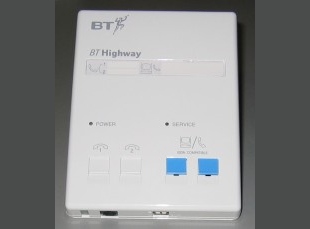BT to axe ISDN for domestic users
Another nail in the coffin of high-speed dial-up in the face of cheap and plentiful broadband availability.

BT has announced that it will axe its ISDN service for consumer customers later this year - the beginning of the end for what was a groundbreaking networking technology less than eight years ago.
The telco has already stopped selling its Home Highway ISDN (integrated services digital network) product, which was ditched in February, while existing users have just a few months to switch to a faster ADSL broadband connection.
Typically ISDN was used where broadband services were not available, though improvements over the past few years to the UK broadband footprint have gradually negated its role, while falling broadband prices caused by subsidised services from the likes of TalkTalk and Sky mean it is no longer competitive on price either.
'We are withdrawing consumer ISDN,' said a BT spokesman, 'the demand for it has dived with the availability of cheap, fast broadband.'
BT's current migration process enables ISDN lines to be switched to ADSL within one working day. The company appears to have abandoned a new system suggested by industry regulator Ofcom that one ISP, Entanet, had said could have led to long delays between switching off the ISDN signal and turning on ADSL.
'The current system has worked perfectly well up to now,' said Entanet's broadband business development manager, Carol Davies. 'It makes switching off ISDN and switching on broadband very simple as the whole job can be done in a single day. There are no complications and no hold ups.'
ISDN was introduced in the mid-90s as a faster alternative to dial-up connections: a single ISDN line provided 64Kbps in both directions, compared to the rarely achieved upstream 56Kbps maximum.
Get the ITPro daily newsletter
Sign up today and you will receive a free copy of our Future Focus 2025 report - the leading guidance on AI, cybersecurity and other IT challenges as per 700+ senior executives
-
 Cleo attack victim list grows as Hertz confirms customer data stolen
Cleo attack victim list grows as Hertz confirms customer data stolenNews Hertz has confirmed it suffered a data breach as a result of the Cleo zero-day vulnerability in late 2024, with the car rental giant warning that customer data was stolen.
By Ross Kelly
-
 Lateral moves in tech: Why leaders should support employee mobility
Lateral moves in tech: Why leaders should support employee mobilityIn-depth Encouraging staff to switch roles can have long-term benefits for skills in the tech sector
By Keri Allan